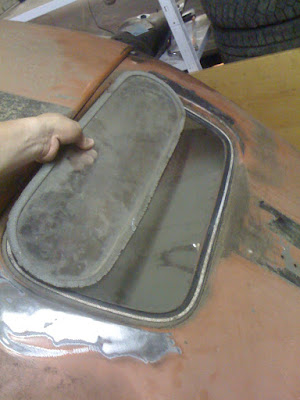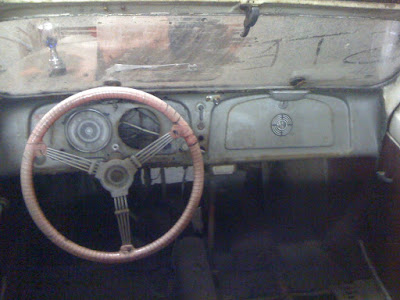
In 1937, Volkswagen began building prototypes of the KdF-wagen (what would later evolve into the Beetle.) It was Tatra's contention that Ledwinka's patented designs had been pirated by Volkswagen, and Tatra sued just prior to the opening salvos of World War II. Within months, Hitler resolved the patent dispute by taking over the Tatra facilities early in the war. T-97 production ceased.
The Nazi government occupied Czechoslovakia in 1938 and forced Ledwinka's office under military rule. For the next six years, Ledwinka's primary responsibility was to supervise the engineering and production of military vehicles. For his efforts under Nazi rule, the Communist-ruled post-war Czechoslovakian government imprisoned Ledwinka for his work during the war. He was interned for six years, until he was finally released in 1951, whereupon he returned to Vienna.
Ledwinka's son Erich was also imprisoned at the same time, but was granted an emigration permit in 1950. Upon returning to Vienna, the younger Ledwinka joined his father's old employer, now known as Steyr-Daimler-Puch (SDP) as a test engineer for engines and chassis. The elder Ledwinka came on with SDP as a consultant, where he worked with his son on the design of the Haflinger military vehicle.
In the years following the war, there were lawsuits regarding Volkswagen's patent infringement upon Ledwinka's designs for the T-97. The suits dragged on for more than a decade, finally ending in 1961 when Volkswagen paid a DM 3 million settlement to the heirs of Franz Ringhoffer, the former owner of Tatra-Werke, vindicating the claims that Ledwinka, not Ferdinand Porsche, was responsible for the overall design of the "people's car."





















